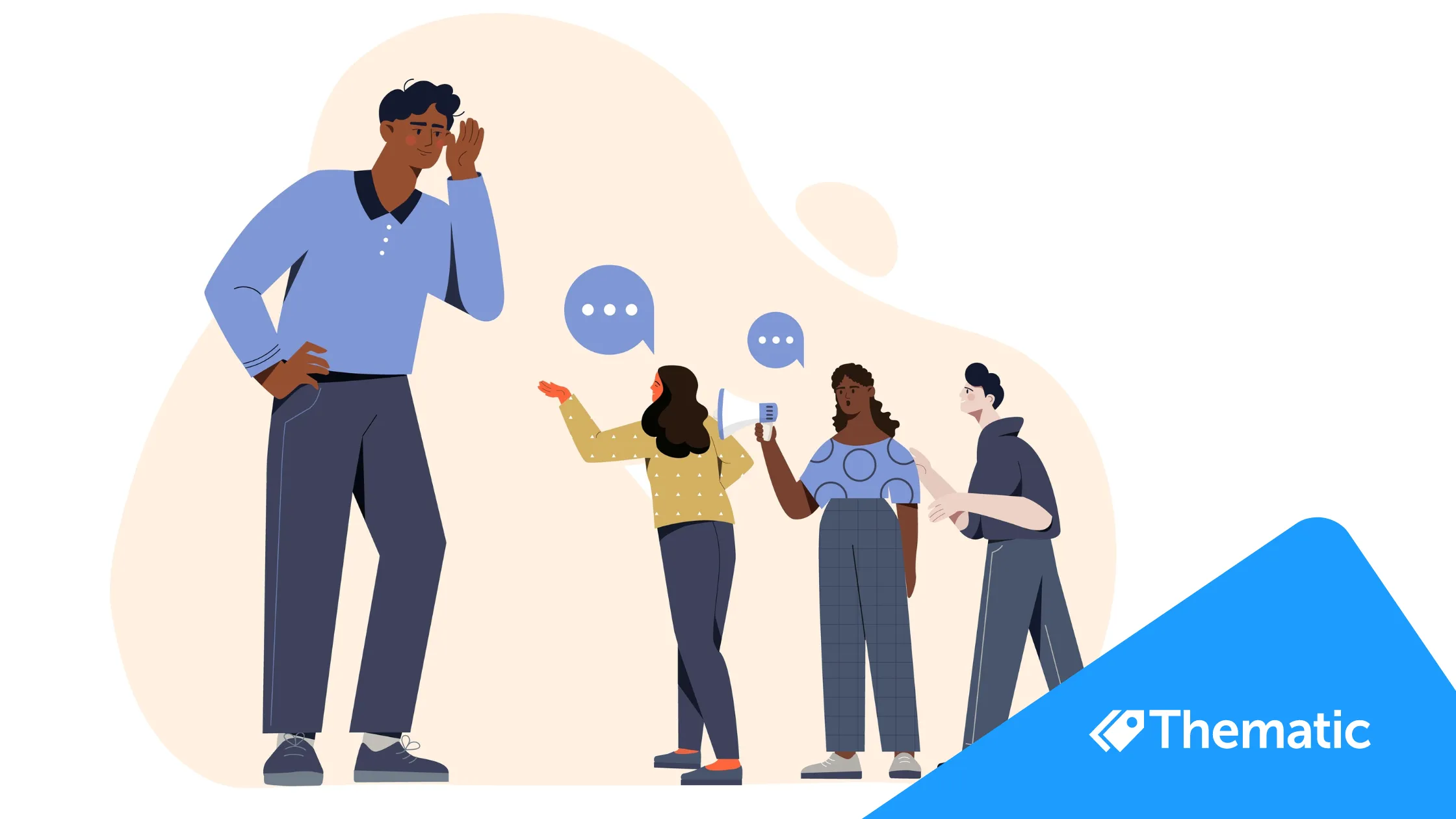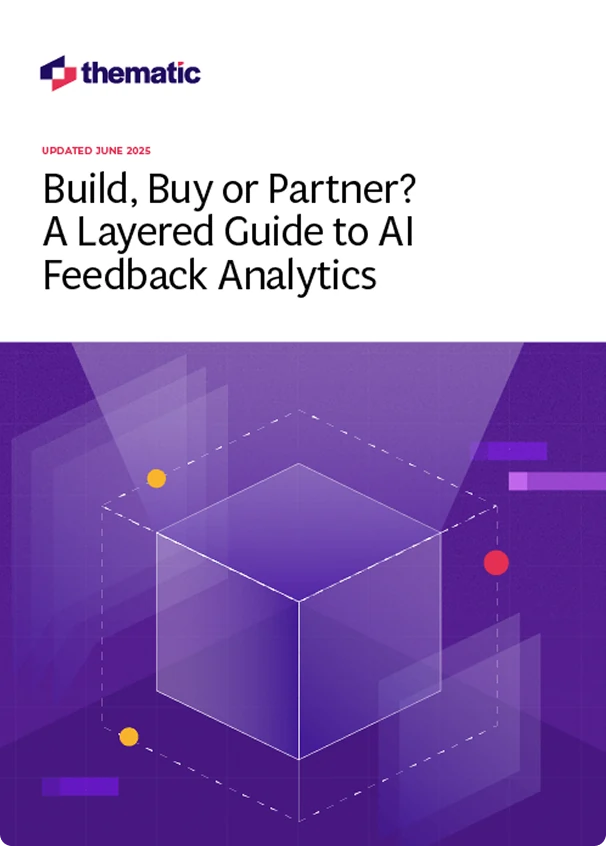From Ignored to Indispensable: The Proven, Step-by-Step CX Insights Mastery Blueprint in < 6 Days! Get free access>

How can you stay relevant in a competitive market - especially one under the pressure of a recession? By listening to your customers.

How can you stay relevant to consumers in a competitive market - especially one under the pressure of a recession? By listening to your customers.
It seems obvious, but according to Hubspot research, 42% of businesses don’t survey their customers or collect feedback. These companies may say that they ‘put customers first’, but without a voice of customer program in place it seems unlikely!
During an economic downturn, acquiring new customers gets harder. Retaining the customers you have and making sure they're happy becomes more important.
Your customers share how they feel, and what they do and don’t like about products and services all the time. Think surveys, posts on social media, online reviews and chat logs. Analyzing this feedback data becomes increasingly important during a recession.
If you're not listening to what customers are saying, or you don't have the right analysis tools in place, then business decisions are made based on uncertainty.
Investing in quality feedback analytics means you have the answers you need to confidently drive decisions - even in a recession. You need insights you can act on to reduce customer churn, improve products and services, and get an edge over competitors.
When the market rights itself, you'll be in a much better position - and can potentially capitalize on the upturn in the economy.

By understanding what customers like and don’t like about products and services, you can make changes that improve customer satisfaction. Improved customer satisfaction directly affects revenue. A whopping 93% of customers are likely to make repeat purchases from companies that provide a quality customer experience.
Keeping your customers satisfied and preventing customer churn are two sides of the same coin. Churn analysis gives you the answers to the following questions:
During the 2008 recession, Starbucks came under threat. The company saw their customers turning to competitors who sold cheaper coffee.
Due to the rapid decrease in consumer share, multiple Starbucks stores were forced to close, and many employees lost their jobs.
Starbucks knew they had to act to improve customer satisfaction and reduce churn. They redirected their strategy to focus on the customer.
Stores became ‘welcoming hubs’, where customers could give ideas on their ideal Starbucks experience through an online portal.
Starbucks transformed its brand perception from expensive and attached, to a customer-centered, value-producing brand. This re-focus of strategy saved them as a brand and was an onramp to more CX innovation - which tripled their annual revenue in 2010. The CEO at the time, Howard Schultz, attributed the success to the firm's focus on customer experience.
This transformation only happened because they tuned their ears to their customers, and practically applied their learnings. This radically improved customer satisfaction, and their bottom line.

Analyzing customer feedback can unlock competitor insights, shine a light on gaps in the market and make it easier and faster to act on customer preferences. Companies that take advantage of these insights gain a competitive edge.
An example of a company that successfully leveraged a market gap during the 2008 recession is mens' fashion retailer Bonobos.
Focused on understanding their customers before going to market, Bonobos identified an underserved customer segment: men who struggled to find jeans that fit well. Bonobos actively encouraged their customers to order multiple pairs of jeans in order to find the perfect pair, whilst being able to send back the rest.
Just five years after the recession, Bonobos was generating $70 million in annual revenue. They expanded into other items of clothing with historical fitting issues including formalwear, swimwear and shirts. Their success led to acquisition by Walmart for $300 million.

If your company continually reviews and acts on customer feedback, you'll be in a better position to grow when the recession ends. It's a balancing act between cutting costs and investing to spur growth. Progressive companies stay connected to customer needs, and use these insights to inform investment decisions.
Let's look at Target during the 2008 recession. Same-store sales declined, at least partially due to Wal-Mart's reputation for lower prices: customers concerned with spending were shopping there instead.
With spending on customer “wants” decreasing sharply, Target invested in a key "needs" segment: food. They doubled the amount of floor space devoted to food and extended the range of its food brands, Market Pantry and Archer Farms. At the same time, Target launched a massive marketing campaign to emphasize low prices with consumers, with the slogan "Expect More, Pay Less."
As the recession came to an end, Market Pantry’s sales had increased by 30% and Archer Farms’ by 13%. Food became a $1.8 billion business for Target, because they recognized and acted on customer needs.
Listening to your customers isn’t hard, but it can be time-consuming. Unless your volumes of feedback are small, feedback analytics software is the best way to ensure nothing gets missed. It makes it easy for everyone in your company to review customer data, and pull the insights relevant to their teams.
One thing's for sure - listening to customers is essential to your recession strategy. Unsure how to get started? Here's a great guide on how to analyze and act on customer feedback - using manual or automated methods.
If you'd like to see how Thematic works magic on your feedback data, book a demo with our team!
Join the newsletter to receive the latest updates in your inbox.

Transforming customer feedback with AI holds immense potential, but many organizations stumble into unexpected challenges.